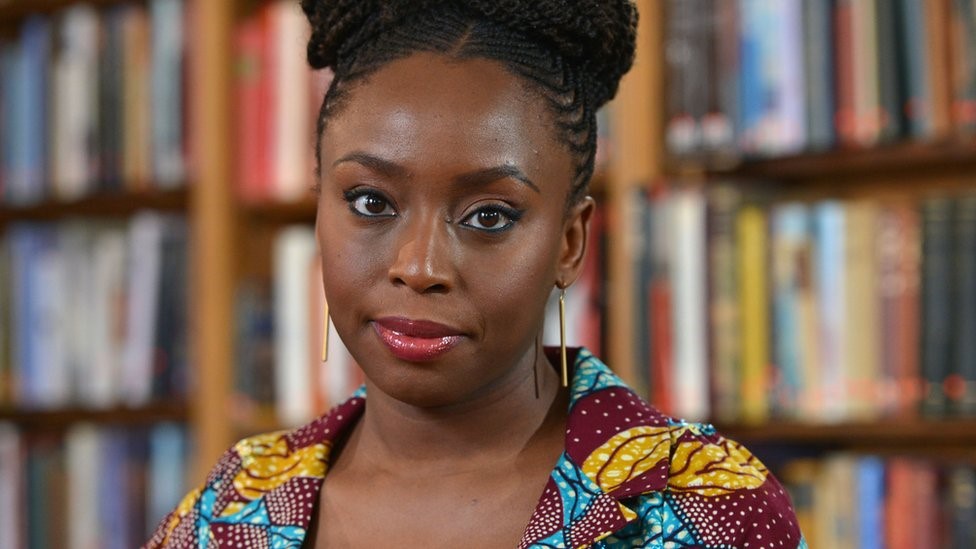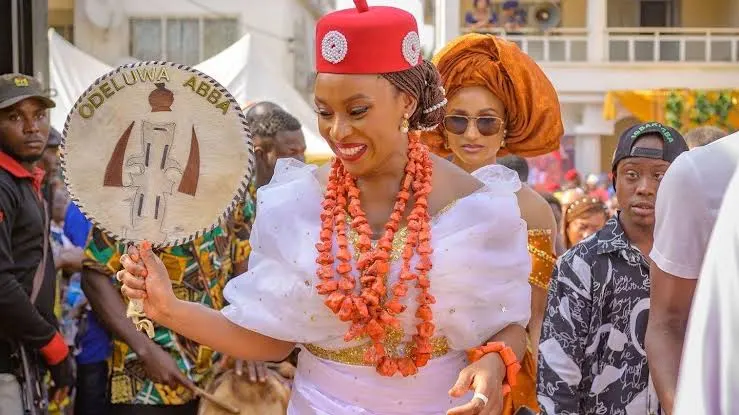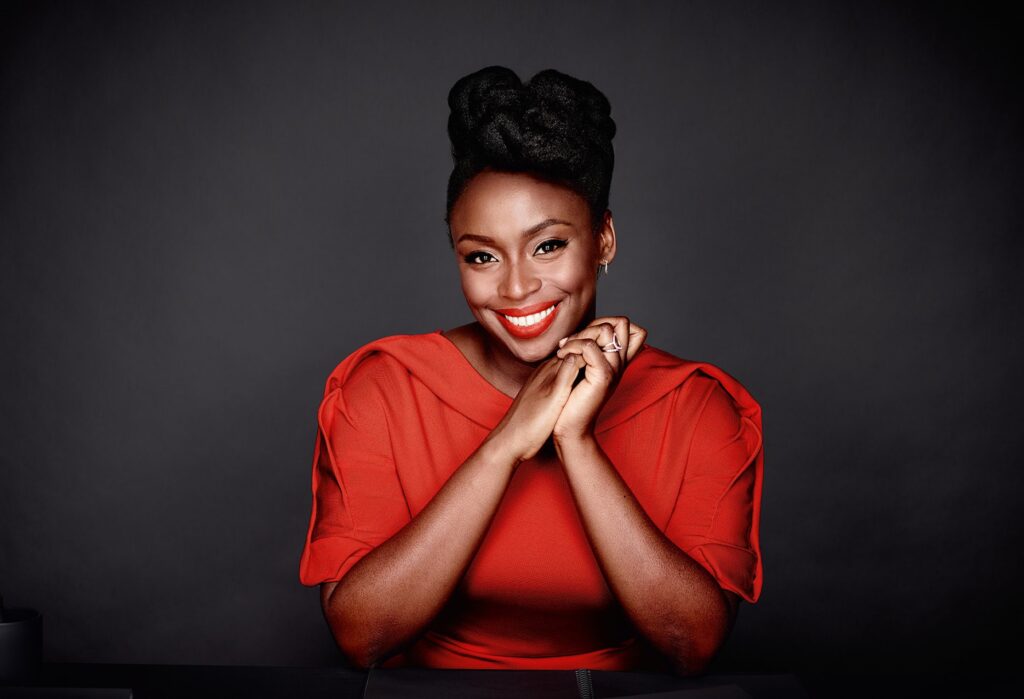A Trailblazing Feminist And Literary Luminary
Chimamanda Ngozi Adichie is a name that resonates with readers, activists, and feminists worldwide. This Nigerian-born writer has not only captivated the literary world with her compelling novels but has also emerged as a prominent feminist voice, advocating for gender equality and social justice. Her life and legacy are a testament to the power of literature and activism to inspire change and challenge prevailing stereotypes.
Chimamanda Ngozi Adichie was born on September 15, 1977, in Enugu, Nigeria. She grew up in a middle-class family, and her parents instilled in her a love for reading and education from a young age. From a very young age, Chimamanda Ngozi Adichie exhibited a remarkable inclination for storytelling. At the tender age of seven, she embarked on her first literary endeavour by penning a novel. While this early work remained unpublished and may not have achieved literary acclaim, it serves as a poignant testament to her innate passion for the art of storytelling. It hints at the seeds of creativity that would later blossom into a prolific and celebrated writing career. Adichie’s early foray into writing is a testament to the profound connection she has always had with words and narratives, foreshadowing her future as a literary luminary. Her early exposure to African literature, especially the works of Chinua Achebe and Buchi Emecheta, had a profound influence on her and planted the seeds of her future literary aspirations.
Adichie completed her primary and secondary education in Nigeria before moving to the United States to pursue a bachelor’s degree in communication and political science at Eastern Connecticut State University. She furthered her education by earning a master’s degree in creative writing from Johns Hopkins University and later completed a master’s degree in African Studies at Yale University.

Adichie’s academic journey at Harvard University played a pivotal role in shaping her as a writer. During her time at Harvard, she embarked on a master’s thesis that focused on the works of Virginia Woolf and William Faulkner. This academic endeavour deepened her understanding of narrative structure, character development, and storytelling techniques. It laid the intellectual foundation for her future literary career. The analytical rigour and critical insights she gained while studying these renowned authors influenced her own unique narrative style. Adichie’s Harvard experience underscores the vital role that academic exploration and literary scholarship can play in nurturing emerging writers.
Adichie’s literary journey began with her first novel, “Purple Hibiscus,” published in 2003. The novel received widespread critical acclaim and announced her as a talented new voice in African literature. “Purple Hibiscus” delves into the complexities of family dynamics and religious extremism in Nigeria, setting the tone for Adichie’s future explorations of identity, feminism, and colonialism.
In 2006, Adichie released her second novel, “Half of a Yellow Sun.” This ground breaking work, set during the Biafran War, earned her the Orange Prize for Fiction and solidified her status as a literary luminary. Through the lives of her characters, Adichie delves deep into the socio-political upheaval in Nigeria during that tumultuous period.
Her third novel, “Americanah” (2013), tackled the themes of race, immigration, and identity. The novel follows the journey of a Nigerian woman, Ifemelu, as she navigates life in the United States, offering poignant insights into the experiences of African immigrants and the complexities of race relations.
Adichie’s essays and non-fiction works, including “We Should All Be Feminists” (2014) and “Dear Ijeawele, or A Feminist Manifesto in Fifteen Suggestions” (2017), have had a profound impact on contemporary feminist discourse. These works have been adapted into TED Talks, further extending her reach and influence on the global stage.
Adichie’s novels are deeply interwoven with the history and complexities of her native Nigeria. Her family’s direct involvement in the Biafran secession during the Nigerian Civil War adds a personal dimension to her exploration of historical events. This historical backdrop, marked by strife and turmoil, has provided her with a rich source of inspiration. It informs her storytelling in profound ways, especially evident in her critically acclaimed novel “Half of a Yellow Sun,” which delves into the lives of characters amidst the backdrop of the Biafran War. By drawing from her family’s experiences and the historical context of Nigeria, Adichie adds layers of authenticity and emotional resonance to her narratives.
Beyond her role as a celebrated author, Adichie briefly stepped into the realm of education as a creative writing instructor at Princeton University in the United States. This period of teaching allowed her to share her knowledge and passion for storytelling with a new generation of aspiring writers. It provided her with the opportunity to mentor and inspire emerging talents, contributing to the growth and diversification of the literary community. Her role as an educator reflects her commitment to fostering the next generation of literary voices and underscores the importance of passing on the torch of knowledge and creativity.

Adichie’s steadfast embrace of her Igbo heritage is a recurring theme in both her life and her literary works. Throughout her novels, she consistently weaves in Igbo traditions, cultural nuances, and historical references. Her commitment to preserving and celebrating African cultural heritage is a central element of her identity as a writer. Adichie’s portrayal of Igbo culture in her works serves as a powerful reminder of the richness and diversity of African heritage. It also highlights her dedication to ensuring that African voices and perspectives are given prominence in the global literary landscape, challenging stereotypes and misconceptions about African culture.
In 2008, Chimamanda Ngozi Adichie received one of the most prestigious honours in the field of arts and letters—the MacArthur Foundation Fellowship, commonly referred to as a “genius grant.” This coveted award recognized her exceptional contributions to literature and her profound impact on global literary discourse. The MacArthur Fellowship not only affirmed her status as a celebrated author but also provided her with the resources and recognition to continue her literary endeavours with even greater vigour. It underscored her role as a trailblazing writer whose words resonated not only with her immediate audience but with readers and thinkers worldwide. Adichie’s literary achievements have garnered numerous awards and accolades, cementing her status as a preeminent writer of her generation. One of the standout accolades is the National Book Critics Circle Award for Fiction, which she received for her novel “Americanah.” This prestigious recognition celebrates her remarkable talent for crafting compelling narratives that resonate deeply with readers. Her ability to weave together intricate stories that explore themes of identity, race, and belonging has earned her a place among the most celebrated contemporary authors. Adichie’s literary awards serve as a testament to the enduring impact of her storytelling on the literary world.
Chimamanda Ngozi Adichie is not only celebrated for her literary prowess but also for her unapologetic advocacy for feminism and social justice. She has emerged as a prominent feminist icon, encouraging women and men alike to challenge gender norms and strive for equality.
In her TED Talk “We Should All Be Feminists,” Adichie eloquently articulates the need for a more inclusive and equitable world. Her call to action resonated with audiences worldwide, sparking important conversations about feminism and gender equality.
Adichie’s feminism is intersectional, recognizing the interconnectedness of various forms of oppression. She has spoken out against systemic racism, xenophobia, and the marginalization of LGBTQ+ communities, emphasizing the importance of allyship and solidarity in the fight for justice.

In 2020, Adichie entered a new chapter in her life when she became a mother. This significant personal milestone added another layer to her multifaceted identity as a feminist and writer. Adichie has candidly shared her experiences of navigating the complexities of motherhood while continuing to pursue her career as a writer and advocate. Her openness about the challenges and joys faced by women who strive to balance family and professional aspirations provides a valuable perspective on the intersection of motherhood and creative pursuits. Adichie’s journey as a mother underscores her commitment to promoting inclusive and diverse narratives that reflect the experiences of women from all walks of life.
Chimamanda Ngozi Adichie’s legacy is multifaceted. She has not only enriched contemporary literature with her thought-provoking novels but has also played a pivotal role in shaping feminist discourse and inspiring a new generation of activists. Her impact extends far beyond her written words; it is evident in the countless individuals who have been empowered to challenge societal norms and work towards a more just and equitable world.
Adichie’s influence can be seen in the increasing recognition of African literature on the global stage and the growing prominence of African voices in contemporary literature. She has inspired a generation of African writers to tell their stories, contributing to a richer and more diverse literary landscape.
Chimamanda Ngozi Adichie is a literary luminary, feminist trailblazer, and an unrelenting advocate for social justice. Her life and legacy remind us of the transformative power of literature and activism to challenge the status quo and inspire positive change. As she continues to write, speak, and advocate for a more inclusive and equitable world, Chimamanda Ngozi Adichie’s influence is bound to endure for generations to come, reminding us all that we should indeed “all be feminists.” Her work is a beacon of hope for a more equal and just future, and her legacy continues to inspire and empower individuals around the world to strive for a better world.
Sources
- https://en.wikipedia.org/wiki/Chimamanda_Ngozi_Adichie
- https://www.britannica.com/biography/Chimamanda-Ngozi-Adichie#:~:text=Chimamanda%20Ngozi%20Adichie%2C%20(born%20September,explore%20the%20intersections%20of%20identity
- https://www.chimamanda.com/about/
- https://www.goodreads.com/author/show/19992417.Chimamanda_Ngozi_Adichie
- https://www.britannica.com/biography/Chimamanda-Ngozi-Adichie
- http://www.l3.ulg.ac.be/adichie/




